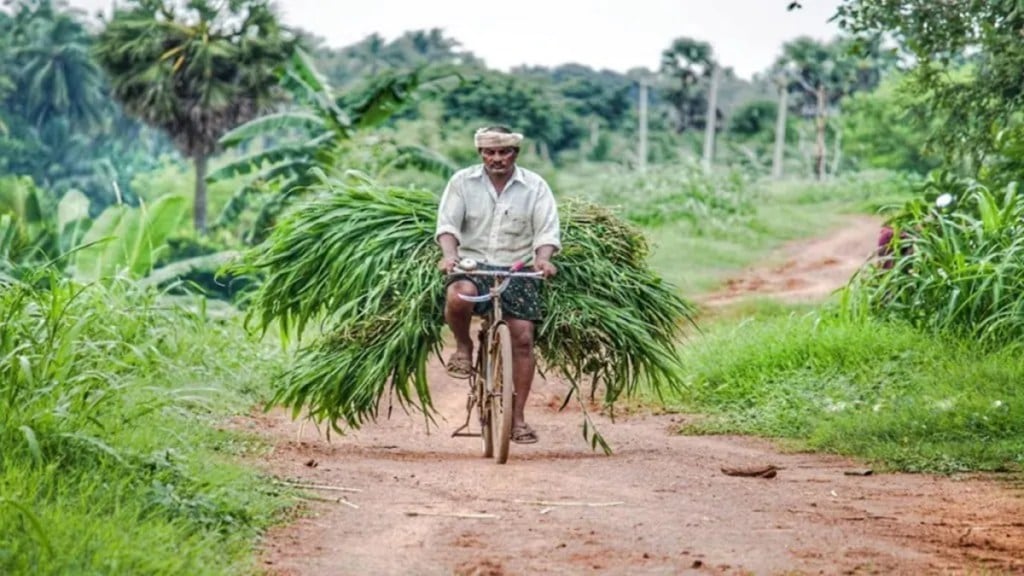In a first-of-its-kind initiative to strengthen agricultural value chains through the public-private partnership model, the ministry of agriculture has approved a proposal by Ninjacart, an agri-supply chain platform, to develop a maize cluster in Uttar Pradesh.
Under the Public-Private Partnership for Agriculture Value Chain Development (PPPAVCD) initiative, Ninjacart aims to procure 25,000 tonne of maize annually from over 10,000 farmers across five districts in the state. The maize will be primarily supplied to ethanol production units, according to sources.
Sources told FE a number of other projects under PPP model of the agriculture ministry including value chain development initiatives for ginger and turmeric in Odisha by Heifer International, and a potato cluster in Uttar Pradesh by global potato processor Agristo Masa. Memoranda of understanding (MoUs) for these projects are expected to be signed shortly.
Officials said the key area of thrust on creation of value-chains will be on pulses, oilseeds, maize, millets and horticulture produce while paddy and wheat have been excluded from the ambit of the initiative.
Under this model, private entities are expected to introduce modern technologies, enhance farming practices, provide quality seeds and agri-inputs, and guarantee buyback arrangements. Each project will span 3 to 5 years and will involve convergence with various central and state government schemes to extend financial and technical support to farmers.
Under PPPAVCD, a cluster of 500-10,000 farmers are being formed in which they get assurance of a buy back arrangement, innovative farm practices and convergence of various government schemes at the centre and state levels which would allow the financial benefits are transferred to their bank accounts of farmers through direct benefit transfer.
Currently, 18 such projects across Karnataka, Uttar Pradesh, Odisha, Madhya Pradesh, Maharashtra, Andhra Pradesh, Telangana, and Tamil Nadu are at various stages of development. These projects span key crops such as maize, fruits and vegetables, potatoes, soybean, spices (ginger and turmeric), and millets, and are expected to collectively benefit nearly 100,000 farmers with an investment outlay of around Rs 1,000 crore.
The aim is to increase farmers income by 35-40% and farm productivity by 20-25%, an official said.
Discussions are ongoing with several agri-majors including Syngenta, Bayer Crop Science, JK Foods, ADM Agro, and the Madhya Pradesh Women Poultry Producers Company to develop commodity-specific value chains across different agro-climatic zones.
The guideline of PPPAVCD was approved last year by the agriculture ministry and is being led by entities including private players, farmers producer organisations (FPOs), Agri-startups and Cooperatives.
Both paddy and wheat have fairly developed value chains where farmers are provided remunerative prices through assured buy back by the government and private processors of the commodities, according to officials.
Under the convergence model, the implementing agencies or private entities can avail benefits for farmers growing pulses and oilseeds under Pradhan Mantri Fasal Bima Yojana and the price deficiency payment schemes of the agriculture ministry.
“Currently there are no robust connections between farmers or FPOs and final buyers of the commodities because of middlemen or intermediaries besides logistical challenges,” an official told FE.
He said unavailability of formal credit across the value chains, inaccessibility of inputs including quality seeds, fertilisers and lack awareness about various government schemes remain a challenge in agri-value chain development.
These entities have been entrusted with the task to identify commodities based on agro-climatic zones for developing the value chain while consent of farmers to participate in the proposed project would be crucial.
